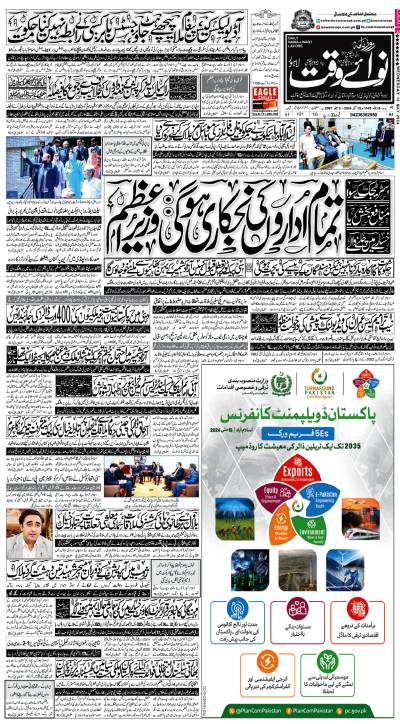These past two weeks, the airwaves and print media have been saturated with news regarding the Panama Papers and the ongoing ‘operation’ in Southern Punjab. The message being delivered is loud and clear; there will be accountability across the board, and there will no longer be any tolerance for the existence of safe havens harbouring militants and criminals. While it may be prudent to treat both claims with a considerable amount of skepticism, it is more important at this juncture to focus on what is not being said and reported. Amidst the endless coverage of politicians bloviating about corruption, events unfolding in Okara have simply slipped beneath the radar. On April 16 Mehr Abdul Sattar, the General Secretary of the Anjuman Muzareen Punjab (AMP), was taken into preventive custody under the Maintenance of Public Order Ordinance, even as the district administration made use of the draconian Section 144 to impose a ban on public gatherings in Okara. This was all done to prevent the AMP from holding a convention to commemorate International Peasants Day on April 17.
Since then, the state has left no stone unturned in its efforts to suppress the AMP, responding to protests against its heavy-handedness by registering cases against thousands of peasants, detaining dozens more, and using force to break up peaceful rallies involving women and children. The AMP is an organization that emerged out of attempts to deepen the exploitation of the peasants working on predominantly military-owned farms in Okara. In 2000, changes were made by fiat that deprived peasants in the area of the security of tenure they had historically enjoyed, replacing sharecropping arrangements with low wages and contracts that institutionalized increasingly precarious livelihoods. Since then, the AMP has been successful in mobilizing tens of thousands of peasants to fight for their rights on a platform dedicated to ensuring the provision of economic and social justice for the underprivileged majority in Pakistan. In the years since the movement first began, the AMP has been subjected to repeated assaults by the state and the military; non-violent protests and marches have been met with bullets and armoured vehicles, over a dozen activists have been killed, and many more continue to languish in jail.
Fundamentally, the AMP and organizations like it on the Left have always made one simple demand; given that Pakistan’s capitalist economy is inherently geared towards protecting the interests of a predatory elite at the expense of the working masses, it is imperative that steps be taken to replace the status quo with a system that is more just and equitable. This is not an unreasonable demand to make, yet concepts like security of tenure, land reform, an redistributive taxation remain anathema to the state and the propertied interests it protects (including, in this case, those of the military). As such, protesting peasants are the constant recipients of state violence and coercion, even as the elite continue their campaign of relentless pillage through offshore accounts, shady real estate deals, and other manifestly dubious ‘business’ practices. There should be no confusion about what all of this demonstrates about the nature of the state in Pakistan. It is in these moments that its class character is exposed for all to see, and its commitment to the protection and pursuit of propertied class interests is revealed. As a country marked by tremendous inequality, with virtually nonexistent protections for labour amidst the intensification of its exploitation, it should be obvious that improving the conditions and lives of the working majority would go a long way towards making Pakistan less unstable, violent, and unjust.
Yet, these basic questions regarding the welfare of this country’s citizens remain unanswered, even as much trumpeted National Action Plans and Judicial Commissions are bandied about as ultimately illusory solutions to more structural problems that cannot be addressed without mounting a radical, democratic challenge to entrenched, privileged interests. While Mehr Abdul Sattar was being detained on fabricated charges, and thousands of peasants in Okara were being tear-gassed, Hafiz Saeed, the head of the Jamaat-ud-Dawa and an alleged terrorist, was calmly delivering a lecture at the University of Engineering and Technology in Lahore. Even as peasants doing nothing more than hoping for a better life for themselves and their children were being ruthlessly suppressed by the security forces, a man widely known to be responsible for spreading hate, bigotry, and extremism continued to do so at one of Pakistan’s top universities, secure in the knowledge that he and others like him have little to fear from the state, unlike activists trying to speak out about the missing people in Balochistan at the Lahore University of Management Sciences last year. In that case, the state machinery displayed an astounding alacrity when it sprung into action to prevent the talk from taking place. Standing in front of a massive banner ironically proclaiming a ‘peaceful and prosperous’ Pakistan, Hafiz Saeed addressed a gathering comprised only of men.
It would not be unreasonable to assume that there were few, if any, participants belonging to minority sects or communities. In Okara, Muslims and Christians faced the batons of the army and police together, with women at the forefront of the struggle. Both of these events present a vision of the future for Pakistan, and the contrast between the two could not be more clear; on the one hand, a parochial and intolerant cry for violence and hatred, exultant at the prospect of yet more men, women, and children being slaughtered at the altar of religious bigotry and, on the other, a paean to a progressive values emphasizing freedom, equality, and social justice for all regardless of creed and caste. That the state has expressed a clear preference for the former says all that needs to be said about its true intentions and interests.






